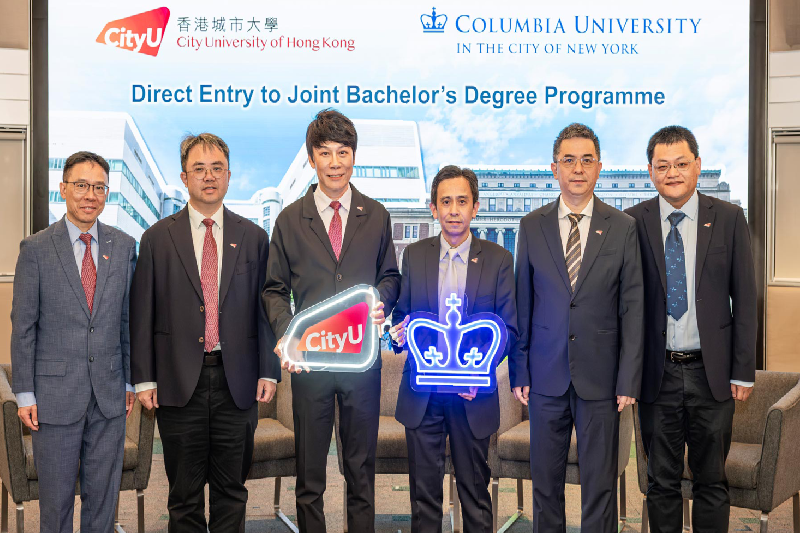
Columbia University Expands Global Reach with New Dual Bachelor’s Program at CityUHK
Columbia University has taken a significant step forward in redefining the global undergraduate experience. On September 10, 2025, the Ivy League institution announced the expansion of its international dual bachelor’s degree programs with the addition of the City University of Hong Kong (CityUHK). This marks a notable evolution in Columbia’s strategy to offer a more diverse, globally immersive academic experience for its undergraduates.
This move strengthens Columbia's existing network of dual degree programs, which already includes prestigious institutions such as Sciences Po in France, Trinity College Dublin in Ireland, and Tel Aviv University in Israel. The inclusion of CityUHK expands the geographical and cultural scope of the offerings and presents new academic and professional possibilities for globally-minded students.
How Columbia’s Dual Bachelor’s Programs Work
These international dual degree programs allow students to earn two bachelor’s degrees in just four years. Participants spend their first two years studying abroad at a partner university, then complete the final two years at Columbia’s School of General Studies (GS) in New York.
The programs are specifically designed for “nontraditional” students—those who might be pursuing education later in life, shifting careers, or looking for an alternative to conventional four-year degrees. This structure promotes cross-cultural academic exposure, offering students an unparalleled chance to immerse themselves in multiple educational systems and cultural settings.
New CityUHK Partnership: What’s Changing
Columbia and CityUHK are not strangers. Their collaboration dates back to 2012, when the partnership allowed CityUHK students to apply for admission to Columbia and complete an additional degree over four years. Currently, 54 CityUHK students are enrolled in the existing program at Columbia.
However, beginning in fall 2026, the program will take a new direction. High school graduates will now be able to apply directly to the dual bachelor’s degree program between Columbia and CityUHK—eliminating the need to first enroll at CityUHK independently.
Students enrolled in this new track can choose from a wide array of majors, particularly in business, science, technology, and social sciences, offering broad academic flexibility and a chance to engage in cross-disciplinary learning.
Why This Expansion Is Important
While academic enrichment is at the heart of the initiative, the expansion also supports Columbia’s financial and strategic goals. The School of General Studies has historically operated with a smaller endowment, limiting its ability to offer expansive need-blind financial aid and other resources. Administrators have acknowledged that international dual degree programs serve as a potential revenue stream, as they attract a wider pool of full-paying international applicants.
As a result, the dual degree programs have grown in prominence. By fall 2025, nearly one-third of incoming GS students will be enrolled in one of these dual degree programs—a clear sign that the model is gaining traction and acceptance.
A Model Rooted in Experience
Columbia’s dual degree framework didn’t emerge overnight. It draws inspiration from earlier collaborations, beginning with its Joint Program with the Jewish Theological Seminary (JTS), launched in 1954. Unlike the international model, JTS students study concurrently at both institutions throughout their undergraduate journey.
Similarly, the Columbia–Juilliard Exchange Program allows students to pursue a Columbia degree while receiving professional-level training in the performing arts—further reflecting Columbia’s longstanding commitment to dual education pathways.
Former university leadership played a pivotal role in establishing both the international dual degree programs and Columbia’s global centers, emphasizing a broader vision of internationalization and global education.
A Track Record of Global Collaboration
Columbia’s first international dual degree program began in 2010 with Sciences Po, a highly regarded French university. The program spans seven campuses across France, four of which accept dual degree students. Each campus specializes in a regional area of study, such as Asia-Pacific or Middle East and Mediterranean studies, enriching the social sciences curriculum with global perspectives.
In 2017, Columbia introduced a partnership with Trinity College Dublin, Ireland’s oldest university. This dual degree program features 12 distinct academic pathways, including English studies, economics, and biomedical sciences.
Columbia’s Tel Aviv University partnership launched in 2019, offering degrees in eight academic tracks at Israel’s largest university. This initiative highlights Columbia’s strong connections with Israel and the GS community located there. However, it has not been without controversy. In March 2024, Columbia College students voted in a divestment referendum, where 65% supported ending the Tel Aviv partnership due to political concerns raised by pro-Palestinian activists.
What Students Should Know Moving Forward
For students seeking a deeply immersive, international undergraduate experience, Columbia’s dual bachelor’s programs provide a compelling opportunity. Starting in fall 2026, high school graduates can apply directly to the Columbia–CityUHK program—significantly lowering the barrier to entry for students interested in studying in Asia and the United States.
These programs are more than just a fast track to two degrees. They offer critical life experiences in adaptability, global citizenship, and intellectual flexibility—skills that are increasingly essential in a complex, interconnected world.
As Columbia continues to develop and promote these dual degree pathways, students will find themselves at the intersection of academic rigor, cultural immersion, and professional opportunity, shaping a new kind of global education in the 21st century.
Conclusion
Columbia University’s expansion of its international dual bachelor’s programs reflects a broader trend in higher education toward globalized learning and strategic international partnerships. By adding CityUHK to its portfolio, Columbia isn’t just opening doors for more students—it’s redefining what it means to be a global learner. With the ability to earn two degrees in four years, traverse continents, and engage with multiple disciplines, students are gaining far more than credentials—they're building a future rooted in global understanding and opportunity.



